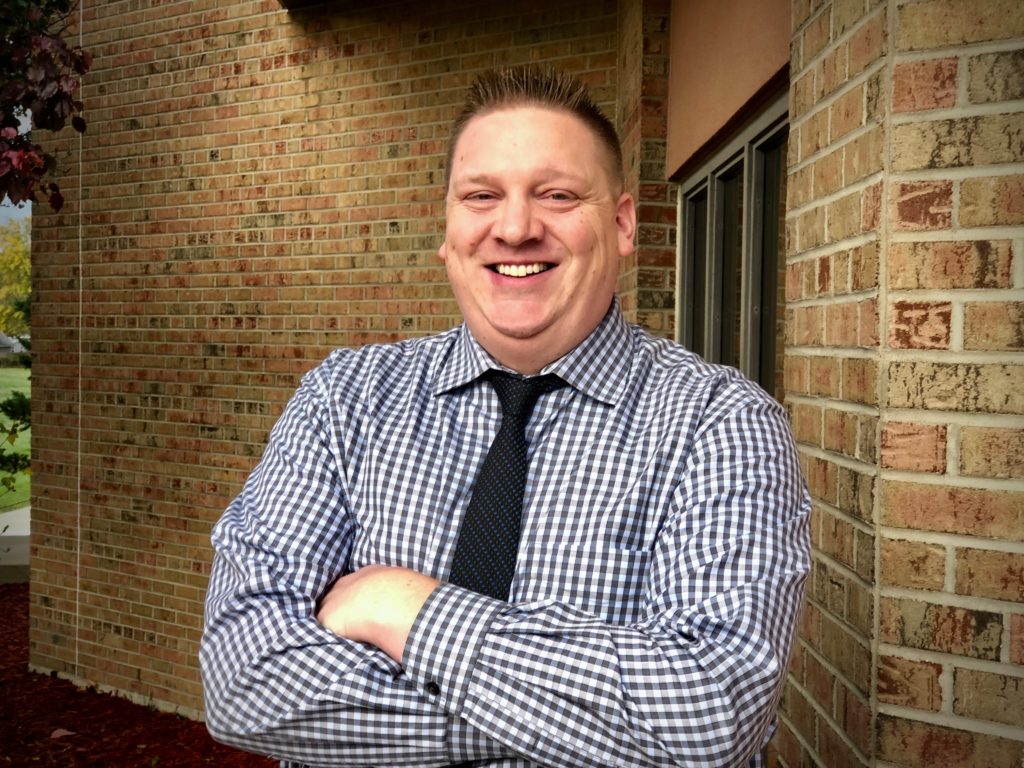
Editor’s note: This is one in a series of profiles of AAPS curriculum coordinators, our behind-the-scenes educators who fill an important role in our students’ school days. These coordinators plan and facilitate the selection, implementation (and often development) of curriculum and assessment systems. They also plan and lead professional development for teachers and others on all aspects of curriculum, assessment, and instruction.
By Jo Mathis/AAPS District News Editor
Tell us a little bit about yourself.
As a child, I grew up in Flint and attended various Flint Public Elementary Schools before moving to Grand Blanc for middle school and high school. After high school, I graduated from Western Michigan University with a degree in elementary education and minors in science and social studies. I later attended the University of Michigan-Dearborn to get an additional endorsement in mathematics. I currently live in Berkley with my University of Michigan alumna wife and second-grade daughter.
Were math and science your favorite classes in grade school?
I did enjoy math and science in grade school but I would’ve enjoyed it much more in the way that we teach it now. The opportunity to explore and answer questions about phenomena that are observed in the world would have increased my engagement in grade school and beyond. I was skilled at remembering specific equations or facts to get through assessments and quizzes but I have since forgotten those one-off facts because they weren’t real to my learning. As we work with students to increase engagement and make math and science meaningful, we work to make students develop deeper understandings and to be able to explain their thinking and work with the thinking of others. This type of instruction creates meaningful connections and transfer of knowledge beyond just facts and memorization.
You’ve been with AAPS since 2018. What were you doing just before you came here, and why did you make the switch?
I joined the AAPS staff in the Spring of 2018 from Birmingham Public Schools where I was a building-based instructional specialist. Prior to coming to Ann Arbor, I also served as an elementary school principal and was a classroom teacher in elementary and middle school. I made the choice to join Ann Arbor because of my desire to serve teachers while maintaining a narrow focus within the areas of mathematics and science instruction. Additionally, I am a believer in the opportunity of increasing the magnitude of our work and this role provides the opportunity to support so many talented educators and thousands of students.
What’s a typical day like for you?
A typical day includes supporting teachers both inside and outside of our elementary schools and in classrooms. Though my office is at the Balas Administration building, I try to get out into buildings as often as my schedule allows. A large portion of my work includes securing and providing necessary curriculum materials for teachers and planning professional learning for teachers. I also spend time learning about best practices in math and science that support various instructional approaches and learning for all students. My work also includes spending time with the secondary math and science leaders along with the ELA and social studies coordinator to ensure that the work that is done in a particular subject can be supported in other areas. Finally, I seek out opportunities to connect with curriculum leaders outside of the district to learn with and from others.
The Michigan Department of Education’s new Science Standards are expected to be fully implemented by the spring of 2020. How close is AAPS to full implementation of the new standards?
Since I arrived in the district, we have had a plan in place to be fully implemented with the Michigan Science Standards in 5th grade in time for the students who will take the science M-Step in the Spring of 2020. Students have received instruction within each of the three domains of science content that will be assessed: earth science, space science, and physical science. For the 2019-2020 school year, we are fully aligned to the Michigan Science Standards in grades 3-5, with kindergarten through second grade to be fully implemented next year.
AAPS uses Phenomenal Science. What do you think of this particular curriculum?
Phenomenal Science is a phenomena based curriculum that was developed by the Central Michigan Science Mathematics Technology Center. It promotes science instruction as a process of student sense-making. Supported by research, the units were developed by teachers to address the lack of updated curricular materials and provide resources to shift instruction to meet all three dimensions of the state adopted, Michigan Science Standards. To maximize time for science, the units include the integration of math and English language arts.
How much should parents help with math and science homework, say, for a fifth grader?
My recommendation to parents would be to ask a lot of questions to their children as they are working. Why are you doing that in that way? Or: How/why does this work or not work? Etcetera. Oftentimes we’re so focused on getting to the right answer that we forget the why. Children today have access to so much content between smartphones and a high powered calculator that we want them to be able to think and rationalize their answers. Devices won’t “make sense” of the work for us. The questions we ask as humans help make sense of the world around us and will serve them as they continue on through life and their schooling.

Be the first to comment